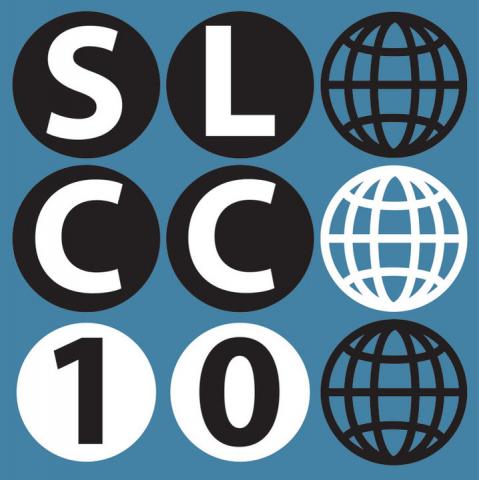
Second Life Community Convention Brings the Metaverse to Boston
BOSTON/Back Bay - This weekend, over 300 people from all over the nation and world will be descending on the Park Plaza Hotel "to network, build friendships and to discuss Second Life in a common forum" according to the leaders of AvaCon, Inc. - the non-profit behind the Second Life Community Convention 2010. This year's SLCC is the sixth since 2005 and like its predecessors is entirely organized by active residents of the Second Life virtual world.
The event is open to the public, and day passes are available for those who'd like to dip their toe in the digital waters of a sometimes exotic online universe.
Joyce Bettencourt (SL: Rhiannon Chatnoir), president of AvaCon, Inc., "If you're at all interested in virtual worlds or the metaverse or immersive spaces online in general, this is a great space. Of course, for all of us that are here, we're drawn to the myriad ways communities express themselves through these virtual spaces - whether it be education, or business, or social things, music, theater, art - so there's definitely a lot of that."
Chris Collins (SL: Fleep Tuque), director of IT and communications for SLCC, added, "I think there's a lot of techy, geeky, creative people that are involved in this; so, you know, if you're generally interested in technology and sort of the cutting edge uses of it, there's a great group of people here."
What is a virtual world? It's a concept that's simple to explain but hard to fully understand until you've tried it. The easiest way to get a handle on it is to think about it as a massively-multiplayer online video game where you can do anything you want with whomever you want - up to the limits established by technology, by convention of the communities that form within the virtual world, and by its owners.
While not quite a household name, Second Life is well-known as the first virtual world to achieve major international success. Created by Philip Rosedale (SL: Philip Linden) and his team at the for-profit Linden Labs in 2003, Second Life managed to grow more quickly than previous experiments at creating immersive online environments outside online 3-D games like Warcraft that already had legions of fans in the same period. This is in part because of Linden's strategy of allowing Second Life residents - known as "avatars" - control of the intellectual property rights to anything they created "in-world" (in Second Life).
The virtual world also grew quickly because of its innovative internal economy - complete with its own currency, the Linden. And, perhaps more importantly, because Second Life's interface and graphics have become increasingly sophisticated since its inception. Making the in-world experience for avatars more and more compelling as the world developed - and allowing a great deal of freedom for people to create environments that would not be possible in the real world. Which is semi-ironically called RL (Real Life) by avatars.
By 2007, millions of people had gotten free SL accounts, created avatars, given them names (all avatars have names), and given the virtual world a shot. But all was not well in the metaverse. Only a fraction of SL newbies stuck around to become longer-term residents. Plus, with an economy linked to the down real world economy, and with the initial wave of corporations and entrepreneurs hoping to make some fast money pulling away from SL almost as quickly as they had come, Linden Labs hasn't been able to maintain the growth that allowed it to top out at over 300 staff. The company recently laid off 30 percent of its workforce, and it's an open - and hotly debated - question about whether SL will manage to keep its virtual doors open.
Bettencourt expects a good deal of dialogue on the issue at SLCC 2010, "The other interesting thing about this year is it's certainly a very watershed year with this particular platform in general. So I think there's a lot of people that'll be here that are wondering where the platform is going, how they can respond to this and what the future of not only this but virtual worlds in general and their uses in the years to come."
But regardless of what happens to SL, there's general agreement that virtual worlds are here to stay. And some of the best experts on this new digital frontier are here in the Hub ready to spend a couple of days talking about them with all comers at all levels of experience.
When asked if prior knowledge of virtual worlds was necessary to attend SLCC 2010, Collins' response was brief and to the point, "Absolutely not, just come, have a great time, and learn."
For more information on SLCC 2010, go to their website at http://www.slconvention.org/.
The conference opens at 5 p.m. today. Regular tickets and day passes will be available at the door.
Jason Pramas - when he's not in RL doing his thing as Editor/Publisher of Open Media Boston - is the SL avatar Sunseeker Miklos. He can be found in-world on New Caerleon. And in person this weekend at SLCC.

